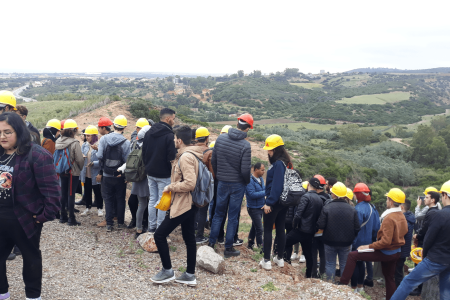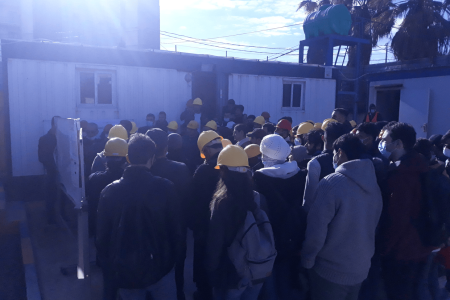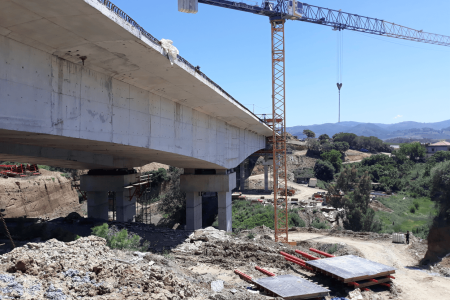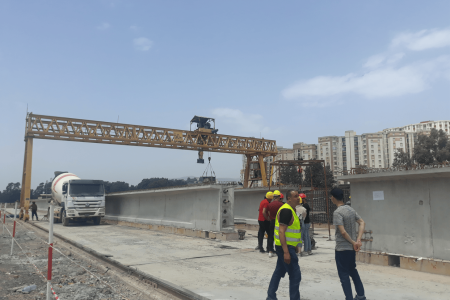Overview of the Basic Infrastructure Department (DIB)
After completing two years in preparatory classes, students can advance their engineering education in the first year of the second cycle, specializing in the Basic Infrastructure Department.
Objectives of Our Training Program:
- Train skilled and effective engineers for the civil engineering and public works sectors.
- Advance applied research to benefit the economic sector.
- Engage in scientific cooperation at both national and international levels.
Foundations of Our Curriculum:
- Identify needs with public authorities, socio-economic partners, alumni, and others.
- Develop programs with input from our training team and research department.
Structure of Our Courses:
Core Modules:
Essential for understanding and mastering advanced topics, including RDM (Strength of Materials), MDS (Soil Mechanics), MMC (Continuum Mechanics), MDF (Fluid Mechanics), Geology, Structures, Structural Mechanics, and Structural Dynamics.
Synthesis Modules:
Specialty modules that synthesize several fundamental modules to enable the design and calculation of structures: Road Geotechnics, Reinforced Concrete, Prestressed Concrete, Steel Constructions, Roads, Bridges, etc.
Complementary Modules:
Modules that are important for the professional life of a public works engineer: Public Works Law, Sustainable Development and Regional Planning, Site Organisation, General Construction Procedures, Management, Entrepreneurship, etc.
Optional Modules:
- Option 1: Railways, Rail bridges
- Option 2: Air base, Maritime works
Additional Training:
- Matlab programming, Highway Engineering, training in Civil 3D software, InfraWorks, GIS/BIM, ROBOT, videoconferences on bridges, rails, and railways.
Contact with the Professional World:
- Internship: 15 to 25 days (1st year)
- Work placement: 15 to 25 days (2nd year)
- Final year placement: 64 days (3rd year)
- Site visits








